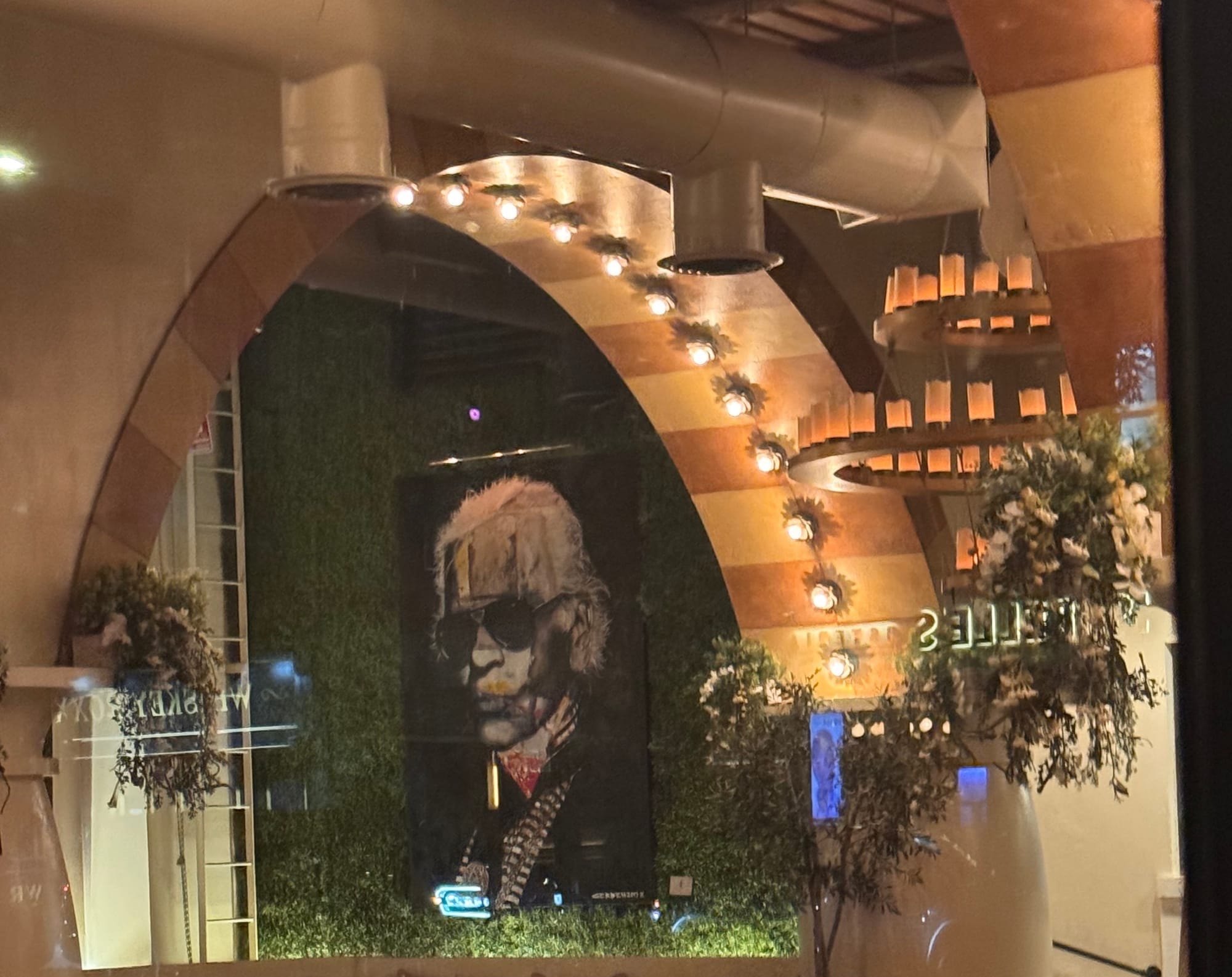
In the last scene of Killing Them Softly, Brad Pitt's character makes a speech that I think about at least once a week. Watch it, it's quick. 👇
Last 5 mins of Andrew Dominik's Killing Them Softly. Please watch this post will make a lot more sense.
I've spent 30 years pinging around the northern part of the new world, from Utqiagvik to San Salvador. When I was younger I wondered how buildings stood up. Later I got curious where all this stuff comes from.
As I moved around, my concept of reality expanded, and I started to see the systems that hosted the personal and professional dramas of every community.
But the truth is, it didn't really make all that much sense until I moved to New York, and then it began to crystallize.
It's all about bananas. Yellow ones and green ones.
In the early 1400s, the Portuguese began building wooden sailing ships to explore the coast of Africa. They were looking for goods to fill their holds - yellow bananas - but they were also looking for opportunities to set up industries, where sustained effort would yield sustained profits - green bananas.
'Yellow bananas' are ready to go. Precious metal, trinkets, furs and pelts, timber, ivory, slaves, salt, guano, fish. These are examples of cargo with which a ship could quickly fill its hold through trade, hunting/gathering, or theft.
A single hold could yield a small fortune for those with a stake, but the real money comes from green bananas. That's the recurring revenue everybody talks about.
Of course you've gotta drive demand for those products back home. But that's a whole other set of costs, problems, and personnel.
The number of ships grew as the Spanish, Dutch, English, French, and others began building their own fleets. More ships means more ports at the end of the chain, but between each other as well. The early visitors would gather the yellow bananas, and then slightly less intrepid but more educated men would show up to build out the green banana production.
Sometimes the 'green bananas' were the same cargo as above. But more complex processes began to emerge. 'Green banana' crops required years to reach maturity, or massive quantities of (usually forced) labor, or extra processing. Huge mining operations began to appear, consuming thousands of indigenous lives.
Engaging in these large-scale, ongoing projects meant bringing in a trusted man, loyal to the interests of the capital and the people who controlled it. These were often the sons of Europe's great and good. Frequently second and third and fourth sons, from a slightly lower position than the owners of the boat, but still close enough that they were 1 or 2 steps away through family or organization.
These were not easy jobs, but the perks were enormous.
Many of these men became fabulously wealthy in their own right, but the bulk of the wealth still flowed back to where the boats came from.
Jardin and Matheson, Hernán Cortés, John Jacob Astor IV, Cecil Rhodes, Robert Clive, Willem Kieft, and even Cabeza de Vaca are all good examples of this historical process.
These trusted-men understood that their wealth and power rested on their ability to connect to the other ports/markets in the network, access to which was controlled by the owners back home. They had autonomy, but they also had quotas to meet. At both layers - the owners and the trusted-man - there was/is NO INCENTIVE to give any control to the people doing the work, or living nearby, even though they are the ones with the most claim to the land and it's produce.
This process took centuries.
By the 1800s, the ports and the traffic between them had grown dense. Many are no longer supporting just a single industry. They've become thick with different trades and activities, becoming not just ports, but also markets in their own right. Goods flowed in and out, but always a goodly chunk of the profits went right back to the men who financed the boats... and the forts... and the soldiers... and the factories...
And they thought that because it was their money, they ought to have the last word on how things got done. And because they often never went to these places, they didn't care at all how their trusted men got productivity up.
Cue the coercion, trickery, and violence.
The Atlantic Slave Trade is an excellent example of this. Almost immediately in the early 1400s, Portuguese pirat- sorry explorers began capturing Africans at sword point, and forcing them to work.
In 1502, the Spanish brought the first Africans to the new world, to replace the Taino people who had been genocided in the Spanish gold mines and nascent sugar plantations.
By the time this form of slavery was finally abolished in the late 1800s, more than 12.5 Africans suffered the fear, disorientation, and pain of being taken from their home in chains, crammed into a dark undulating hold, and taken across the ocean to be whipped, raped, worked, and killed with impunity.
And the money men made a killing on each leg of the triangle.
Then European capitalists - the descendants of the men who commissioned the ships and authorized the establishment of ports - they took the money they'd made off of that exploitation, specifically the wealth brought in by the slave trade, and invested in new world 'green banana' industries, using modern trusted-men (bankers) like Jacob Schiff, August Belmont, and J.P. Morgan.
So now we come back to North Am, which was cleared and settled according to this exact pattern described above, with New York harbor becoming the most important port/market of the new world.
It's original green bananas export was beaver pelts, but because of it's geography, and the peculiarities of it's early displacements and settlements, it became a place through which mind-boggling quantities of people, materials, and money would flow.
It became the control node for the entire new world, that much closer than the leash holders in London and Frankfurt.
And while I'm not saying that they're still controlling everything (far from it), I do want to remind you that these insitutitional, generational powers can get kicked out the front door and right away sneak in through the back. Only now they don't have as many operational costs.
Sembene's Xala. Opening scene. 7 glorious mins.
Which is to say, all these ports/markets that I've been exploring for the last 30 years, spread out all over North America, they were all built to send money back to New York, and New York was built to send money back to Amsterdam and London.
And while the Dutch and the English and the Spanish and the Portuguese had centuries of agrarian life to solidify themselves as cultures and countries, those of us splooged across this stolen continent didn't have the same opportunity. Because our communities weren't built for the people, they were built for the profiteers.
And that means they want as little control for us as possible, and as much for them. That's why we have no healthcare, failing infrastructure, rising hunger and poverty and more people in prison than any other nation on earth.
The United States of America isn't a country. It's just a business.
Now fucking pay me.
(Seriously, please subscribe.)
Dan Flag
P.S. These Friday night posts are usually behind the paywall. Please join at the Pilgrim level to read them all.
